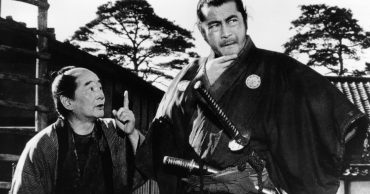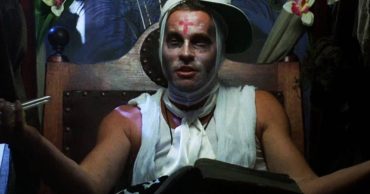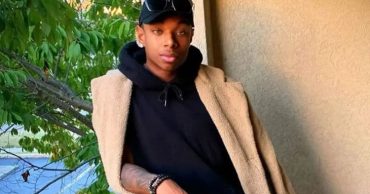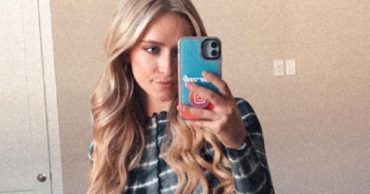Harvard’s South Asian Person of The Year, Avantika Vandanapu, has been in the news lately and, surprisingly, not on a positive note. The Mean Girls star has been facing major backlash after rumor mills churned out news of her screen testing for the role of Rapunzel opposite Milo Manheim in the Disney live-action remake of the movie Tangled. We witnessed a similar uproar in 2023 over the casting of Halle Bailey in The Little Mermaid live-action remake and, more recently, Rachel Ziegler’s casting in the Snow White live-action. Vandanapu is being subject to racist trolling in her Instagram comments section, with rancid hate comments calling her “disgusting” and enraged fans venting on TikTok over Disney’s supposed diversity casting.
Avantika Vandanapu is an Indian-American actress of Telugu descent born in Union City, California. At age ten, she debuted in the 2016 film Brahmatosavam starring Mahesh Babu and went on to appear in multiple Telugu films. Vandanapu then made her Hollywood debut with the Disney original movie Spin. She was recently seen in the Indian OTT series Big Girls Don’t Cry. Vandanapu became a household name after her role in the teen musical comedy Mean Girls playing Karen Shetty — a re-imagination of the same role played by Amanda Seyfried in the 2004 film. Evidently, this isn’t the first time Vandanapu was cast in a role that a white actress previously played, so why is she facing widespread backlash this time around? Let’s find out!
Avantika Vandanapu Hasn’t Even Officially Been Cast
Avantika Vandanapu hasn’t even been cast yet, and fans on the internet are going berserk. With TikToks and hate comments flooding the internet — all based on a rumor — the actress is being bashed left and right, with no official announcements or press releases made by Disney or Vandanapu herself. While spreading hate behind a screen with a faceless identity is easy, people tend to forget the profound effects it can have on the emotional well-being of a person and the community being attacked. People are quick to judge without considering that an organization with a legacy like Disney would’ve evaluated many factors before making any casting decisions.
We believe it is difficult to accept because it has already been etched in our minds that Rapunzel is supposed to be played by a White actress. The idea of a South Asian actor playing the fictional character seems to leave a bad taste in viewers’ mouths clearly. Live-action remakes have a tendency to bring back to life a pre-existing storyline with a whole new perspective while staying true to the soul of the plot. With the animated version of Tangled already staying true to the origins of Rapunzel, there is no reason why the live-action cast cannot be more inclusive.
The Backlash Actresses Face for Being of Color is Uncalled for

Viewers must remember that actresses are merely pieces of the puzzle in a larger entity responsible for producing a big-budget Disney movie. Channeling their hate towards them is utterly uncalled for as they are simply auditioning and seizing opportunities presented to them as part of their job. While we can empathize with the viewer’s sentiment towards the diversity casting for the sake of representation, attacking actresses like Avantika Vandanapu based on their race almost seems to assert more firmly why representation is so vital. A huge chunk of Disney movies were made in a time when racism was soaring, and inclusivity was not given the importance it is shown in the 21st century.
In this day and age, with the diverse world we live in, eliminating racial backlash is essential, especially in the entertainment industry, which holds great influential power and profoundly affects the audience. At the same time, one may argue that this move is viewed through the American lens of having to diversify everything. We need to ask ourselves, Why? Why was there a need to push the diversity narrative to this extent?
Because of the pre-existing racial mindset, taking a beloved character and casting her in a more diverse role was Disney’s attempt at neutralizing the prevalent tension between races. Creative freedom must be granted to filmmakers, and rather than spreading hate, one must ponder how it could be exciting to see a remastered live-action — as the animated one holds its ground all by itself.
The Trend Goes Beyond Just Disney Fairytales to Beloved Franchises Like Star Wars

The trend for racial dragging goes beyond Disney princesses and even wedges its way into other beloved movie franchises like Star Wars. Moses Ingram faced immense backlash when she was cast as Inquisitor Reva in the Disney+ original series Obi-Wan Kenobi. Since its premiere, Ingram was privy to a truckload of racist backlash and alarming direct messages. She posted several screenshots of the vile words thrown her way, ending with a final classy message — “Y’all weird.”
The hate overflowed to an extent where the official Star Wars accounts had to step in with a supportive message of their own, concluding with a powerful line, “There are more than 20 million sentient species in the Star Wars galaxy, don’t choose to be a racist.” Another instance of races being marginalized was when actor John Boyega, who debuted in Star Wars: The Force Awakens as Stormtrooper Finn, accused Disney of bringing on diverse characters and inevitably sidelining them.
While we wished there were no more accounts of Star Wars fans harassing cast members, unfortunately, Kelly Tran — the first woman of color to hold a prominent onscreen role in the Star Wars franchise — who played mechanic Rose in The Last Jedi (2017) had to delete all of her Instagram posts after months of racist and sexist badgering from Star Wars fans. Tran stated that it wasn’t their words but the fact that she started to believe them, going on to say, “… growing up as a woman and a person of color already taught me: that I belonged in margins and spaces, valid only as a minor character in their lives and stories.”
The Pre-Existence of Disney Princesses From Diverse Backgrounds Proves to be the Ultimate Justification for The Hate

While we completely validate an individual’s sentiments for being upset over bringing about such significant changes to a movie with core memories attached — what’s important here is to keep an open mind to accept change. Someone like Rapunzel, a childhood favorite of many, has a specific visual representation, and not seeing the same form translated to the big screen can be irksome. But we, as viewers, are missing the bigger picture here. Diversity casting has worked out beautifully for shows like Bridgerton and the Camila Cabello version of Cinderella.
We know princesses like Tiana and Jasmine exist, but there is no right time or character to incorporate diversity. Broadening one’s perspective and accepting these changes are vital for us to move towards becoming a more inclusive society, especially in an era where the number of expats and mixed-race children is soaring, struggling to figure out their identities while growing up feeling different. In such a scenario, diversifying a beloved character can only be positive, and spreading hate goes against this initiative. Because at the end of the day, whether the princess is Black, White, or Brown, fans can vouch that Disney will not disappoint — with generations of magical storytelling to back them up. Check out how even Lena Dunham, allegedly has had a history of racism.
 Follow Us
Follow Us






